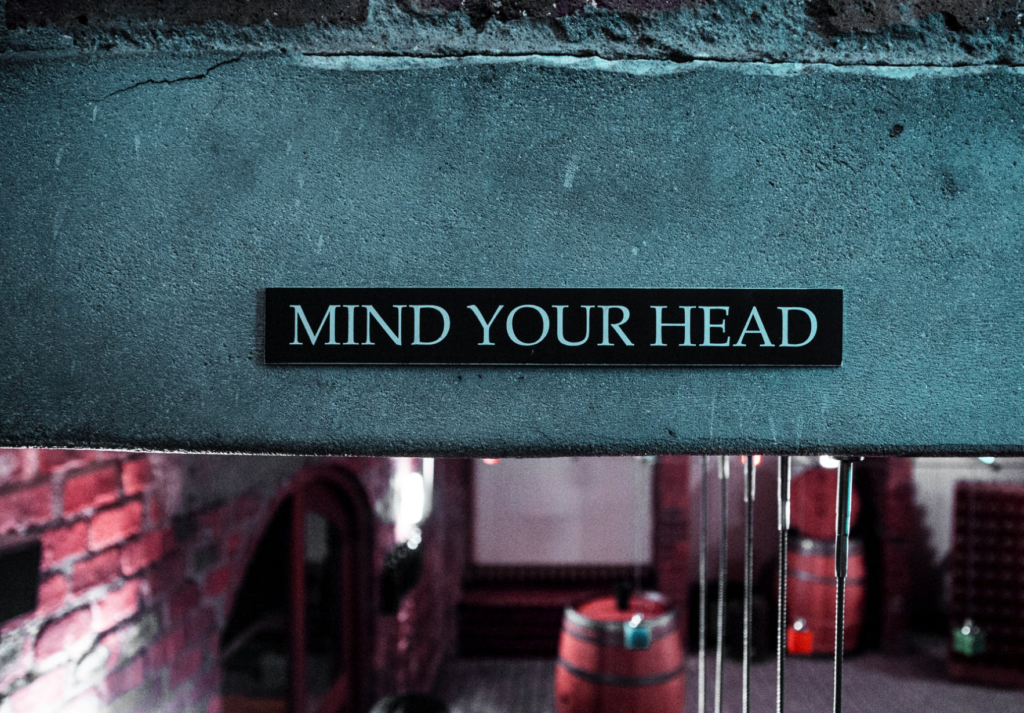

A little while back I introduced the Neurodivergent Spectrum, what it IS, and why it could particularly apply to writers and creative professionals. I even revealed some about my life, struggles, and late diagnosis in my post Neurodivergent Authors: Not Lazy or “Broken.”
There are many reasons for my late diagnosis, and we will cover some today.
***I am ALSO going to continue blogging on craft and brand, but this site has always focused on offering a holistic approach to creative professions—craft, branding, business, life and mental health.
But, before we talk about the autism spectrum, I would like to address why people might want to “care” about this topic, from writers to non-writers to Neurotypical people.
First, there are a lot more ND people out there than anyone ever imagined. Secondly, I believe our modern world and the digital age is either creating, contributing or exacerbating the situation.


If we cannot gain understanding, insight and compassion regarding this topic, I fear we will miss out on a lot of incredible talent and relationships.
We’re going to likely be around ND people. If we can recognize what’s possibly going on with that person, interactions can run far more smoothly. If we see WE have ND issues, then there are all kinds of workarounds once we realize we aren’t stupid, lazy, crazy, or broken.
This is a post about grace for ourselves and others.
Spectrum Self-Diagnoses


I can totally appreciate why many people roll their eyes when someone says they are ADD or ADHD or have Asperger’s or Autism. Some people might shout me down for saying this, but a huge reason I was hesitant to be professionally tested had to do with my attitude about the ND spectrum.
I’d personally encountered far too many people who’d used being on the spectrum as an excuse for never finishing, for flaking out, for being undependable, for being emotionally out of control, etc. Then, I was supposed to excuse all the poor behavior away because they were “insert ND issue here.”
Some of these folks were professionally diagnosed, but many were self-diagnosed. For the record, if you believe you are on the spectrum, you’ll likely start with a self diagnosis. And that is okay, because….
Most Medical Issues Begin This Way
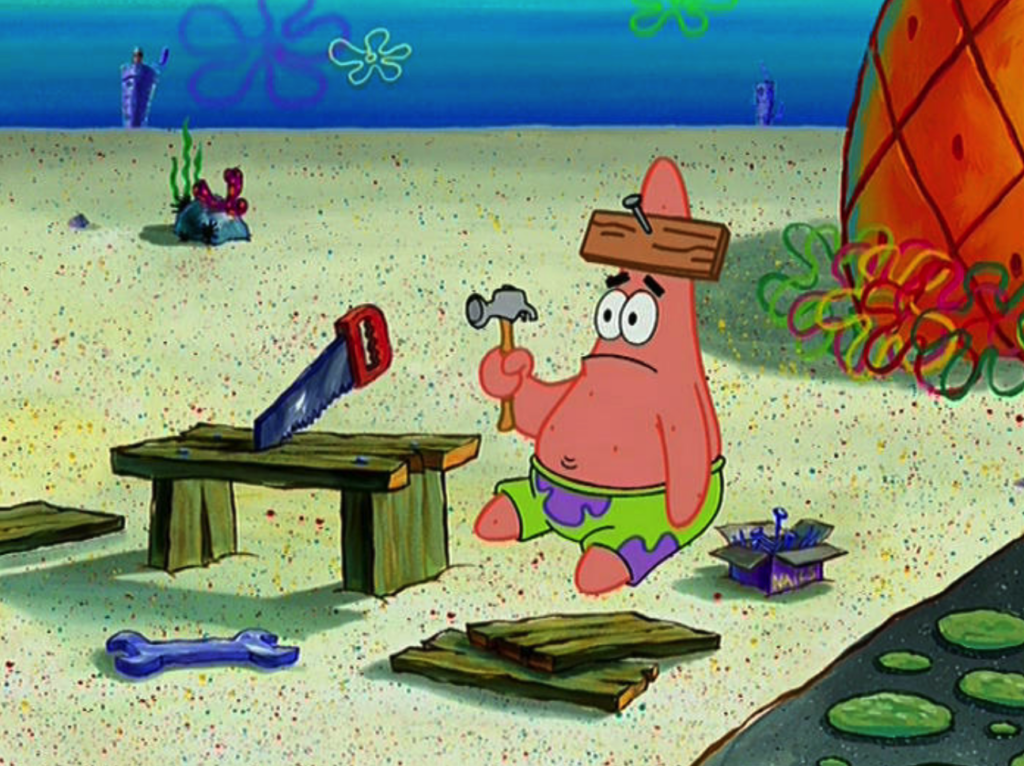

If we look at most of the health concerns we all face, we almost always begin with a self-diagnosis.
***Should we believe we “might” be on the spectrum, this is no different.
Say, I have a weird mole that is dark and itchy. I likely self-diagnose that it could be a skin cancer or melanoma. THEN I see an expert.
If I get a fever, bad cough, sore throat? I probably self-diagnose that I likely have either a cold or virus. THEN I go to a clinic to see what is actually going on. Could be a cold. But, it could be something far worse (cancer) or no big deal (severe allergies).
There is a lot of shade thrown around toward ND people regarding “self-diagnoses,” but what sense does that make?
In my opinion, there is nothing wrong with starting there, but we do need to see if we can get expert help. We might be on the ND spectrum but where exactly? We could also be struggling with other issues—eg. PTSS/PTSD from abuse or some other trauma.
The Spectrum is More than ADHD & Autism
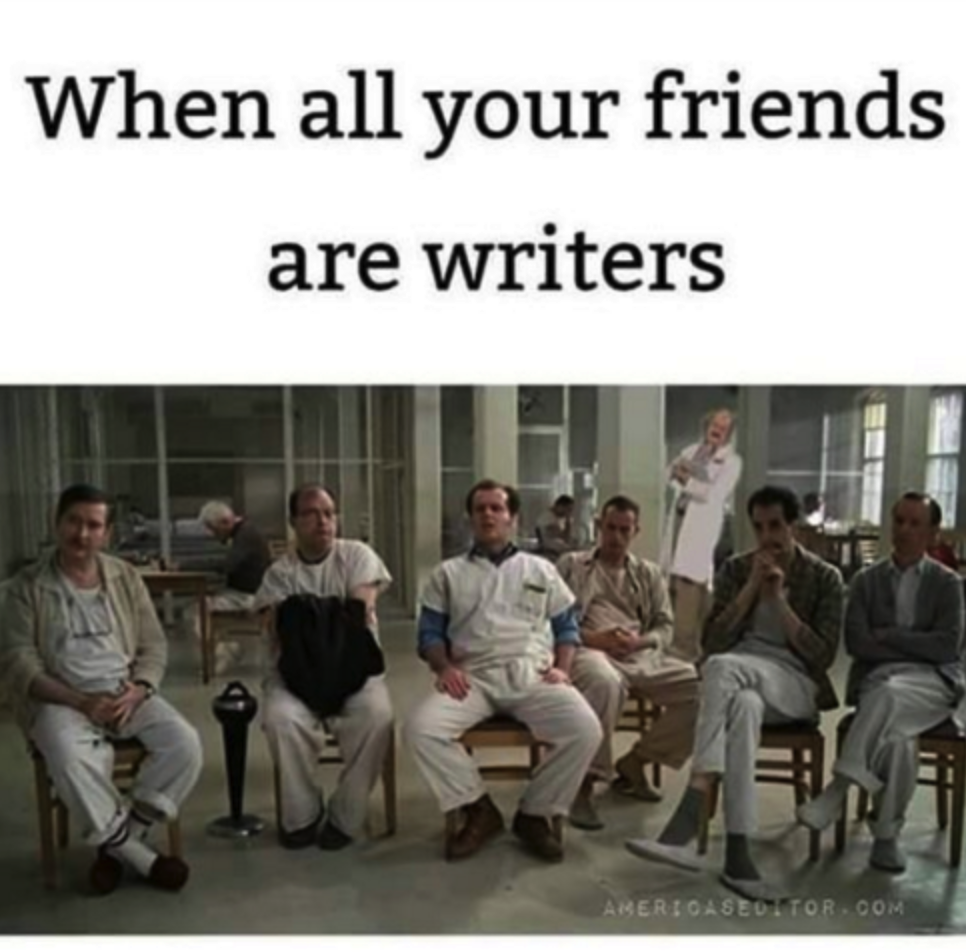

There is a lot of debate as to whether or not PTSD should be included on the ND spectrum (which can cover everything from dyslexia and dyscalculia to autism). Yes, PTSD (or PTSS) can cause structural changes in the brain. But, with proper treatment, much of that can be possibly reversed/healed.
Sadly, there is no healing ADHD.
Unlike those who are truly neurodivergent, PTSD isn’t a) congenital and doesn’t need to be b) permanent. ND people literally are born wired differently. It isn’t a result of a trauma or an acute stressor.
Thus, before we jump on the, “I must be ADHD” train, we might be struggling to pay attention because of undiagnosed dyslexia. We’re slow not because we can’t “pay attention,” but because it is such a struggle to work around a brain that tosses too many speed bumps in the way to be effective.
We might have PTSD and not recognize it, so we could be masking. Perhaps we are in denial, dealing with shame or guilt. Who wants our drama? So we mask.
Suffice to say, a spectrum self-diagnosis is a great start, but we want to make sure we’re getting good advice what is actually going awry. If we are on the spectrum then exactly how, where and to what degree?
If we aren’t, then what is going amiss that is looking a lot like a spectrum disorder?
Why a Diagnosis at ALL?
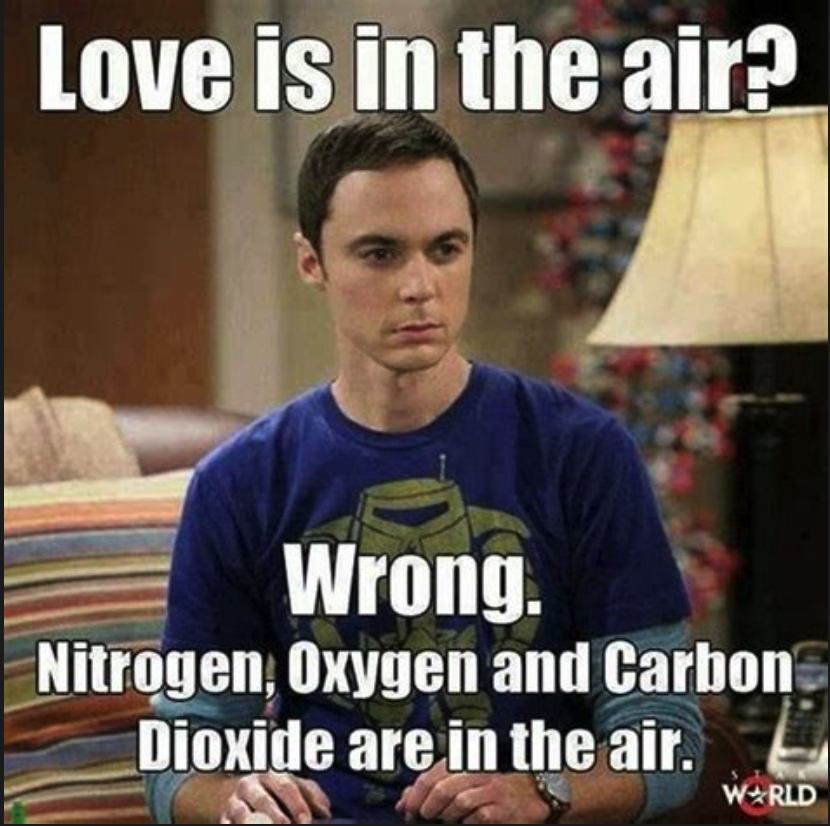

Since I believe I addressed this in other posts, I will be brief here. I did not self-diagnose (mostly out of pride, if I’m being transparent here).
It was not until over a half-dozen mental health professionals who were either friends, fans, or audience members who—after watching me speak—came up and said, “Hey, have you ever been tested for autism?” that I finally took things seriously.
Well, that is a bit of a lie.
I brushed almost all of them off believing I could just willpower my way through anything. Yep. That might have worked when I was younger and in a different world devoid of a BILLION blinking distractions. Eventually, however, the situation became untenable.
I was falling apart and pride and ego had to go.


Yet, when family members asked WHY I wanted a diagnosis, I had to answer that honestly. I don’t want or need an excuse, but I do need a plan of action that makes life doable and even enjoyable.
Once I understood HOW autism was affecting me, a lot of things changed. I am MUCH better at saying no, limiting activities, planning how I want to spend my energy. Now, others can appreciate why I practically LIVE in noise-cancelling headphones and they’re a bit more sympathetic when I ask to turn the lights down a little.
I could start being aware of my scripts. WHAT was happening right before I melted down? Exactly what transpired right before that bout of self-loathing? Why was I “seemingly” out of nowhere suffering sleep-deprivation, anxiety, or severe headaches?
Good news! We can actually rewrite the script! We’re writers.
***The answer to the above, for me, was largely environmental. Shop at times with no/smaller crowds. Get filters for my glasses/computer screen. Change the font on my computer to Dyslexie font. No screen time after 7:00 P.M. etc.
SUDDEN SPECTRUM Disorders
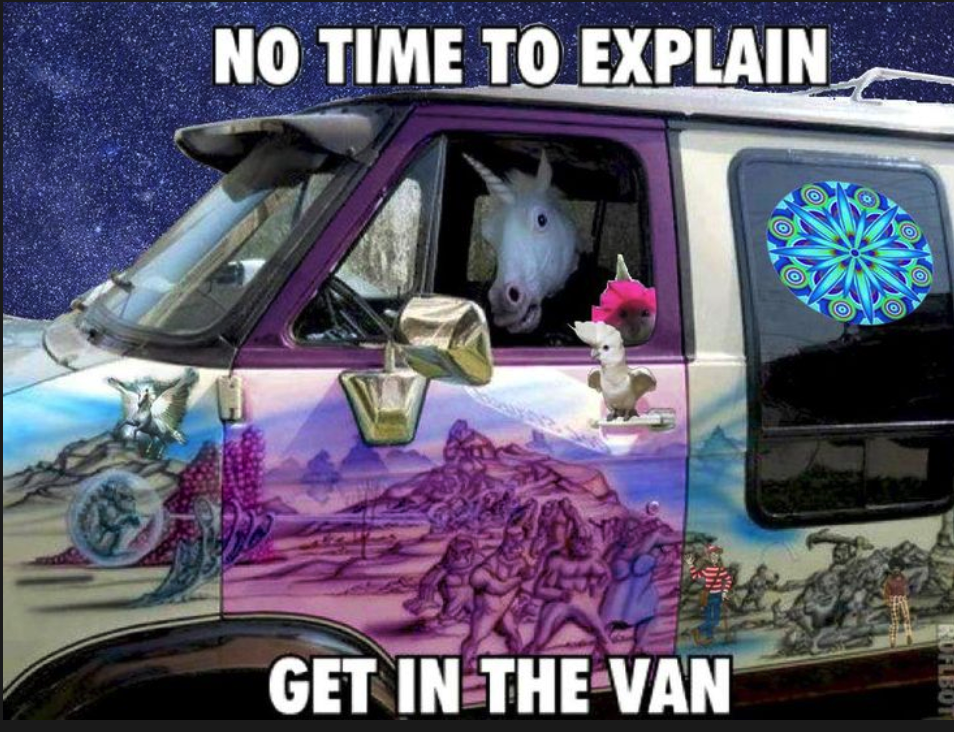

So now to the myth that SUDDENLY everyone is neurodivergent. Bear with me a moment because I am going to be a bit of a smart@$$. I am hoping everyone reading this believes that science, disease detection, understanding and treatment does improve over time.
We no longer diagnose people with consumption (Tuberculosis), Grippe (Flu), Apoplexy (a stroke), the Horrors (fever before delirium), Black Dog (severe depression), Falling Sickness (epilepsy), Mortification (gangrene), or Jail Fever (Typhus) etc.
***Click here for more Outdated Medical Terms. IMPRESS YOUR FRIENDS!
We also don’t bleed people to balance their humors, ladle Mercury down their throats, or insist they take Radium baths.
Or at least I hope not.
Cancer didn’t suddenly become rampant. We just didn’t have the tools and knowledge to recognize it existed, then to detect it, then to treat it, on and on. Hope y’all get the gist.
Yes, movies like Rain Man highlighted autism, but in ways, one could reasonably argue the movie almost did more harm than good.
The movie, Rain Man, showed the world a case of extreme autism (with other issues I’m not qualified to detail). Just because a person is autistic doesn’t mean we need a nursing aid to dress us and feed us before we go count cards in Vegas.
In fact, the concept there was even a neurodivergent spectrum didn’t even arise until the 1990s.
We are not ALL Rain Man.
Medicine & Science Improves


Or, at least we hope it does. Science is a process. As it improves, it can do a better job of detection. For instance, most medical and mental health professionals first only recognized autism when it manifested in the most acute forms (so severe the patient couldn’t function).
Then, many of these professionals believed until recently that children grew out of autism and Asperger’s (and also grew out of ADD, ADHD, etc.).
To make things even MORE fun, most mental health professionals—until very recently—believed only males could be autistic. Even I ran into this when seeking a professional diagnosis…in 2023!
I guess that doctor had never heard of Temple Grandin?
Suffice to say, I don’t believe that suddenly everyone is on the ND spectrum. I DO believe we are understanding the brain far better than we ever have in human history. And, because we understand better, we are realizing that “Normal” really is a setting on the dishwasher.
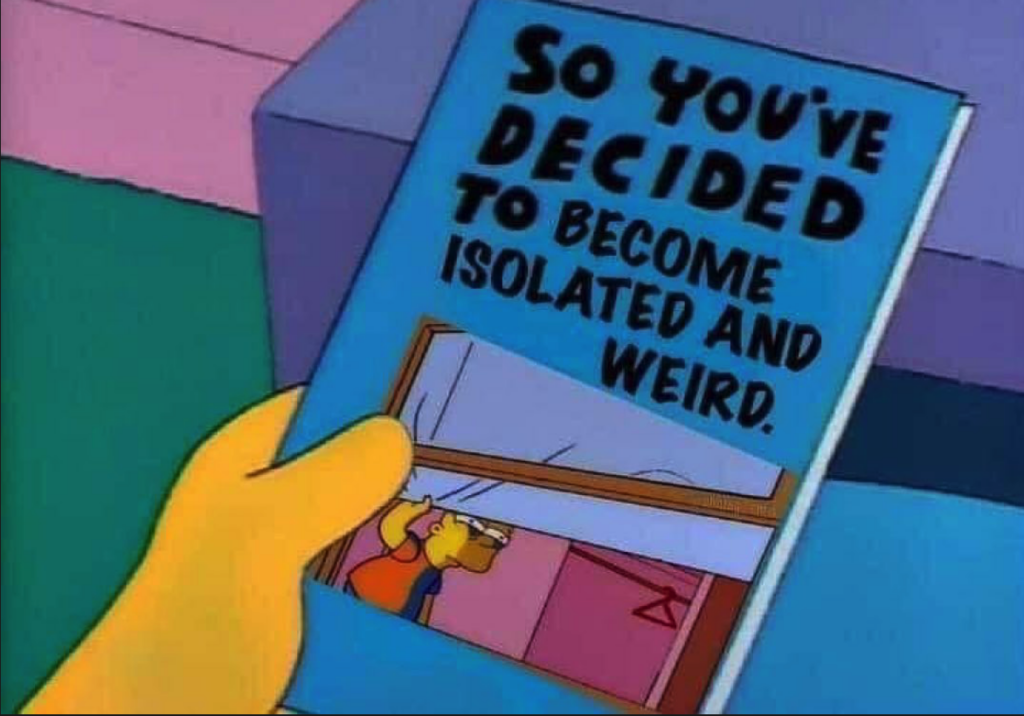

Many of us older people (who are finally getting a diagnosis or maybe realizing we might NEED one) recall the days of being called stupid, lazy, disruptive, defiant, or “bad” kids. We were daydreamers and flakes who “failed to apply ourselves.”
Since there was so little understanding of neuroscience, behavioral problems/character flaws became the default. Sort of like how, when people died of something like, say, pancreatic cancer (which kills very quickly), 400 years ago, clearly they were a victim of the “Evil Eye.”
Joking but not. Just pointing out we have come a LONG way in recognizing how amazing and variegated the brain IS.
“Thank” the Digital Age


Nothing happens in a vacuum, so obviously something other than neuroscience advances has driven the shift in perception. The digital age has been a blessing and a curse, at least for me.
Since I had severe social anxiety from an early age, it made it hard to learn how to be part of a group and conversation. Social media actually did wonders for my social anxiety. Humans learn by studying the group. But, if you are never part of a group because you’re “weird” or too scared, then how do you learn?
Then came Web 2.0….
EARLY ON, I joined a lot of chat rooms on Gather and groups on MySpace. Finally, I could watch and study. I could see how people interacted, took turns, “read the room” and recognized a lot of bad habits I had.
Since I had time to think through a response, I could respond better. The BACKSPACE button was and still is my BFF.
I also had zero concept that social interaction wore me out. Trust me, trying to seem normal is a LOT of work.
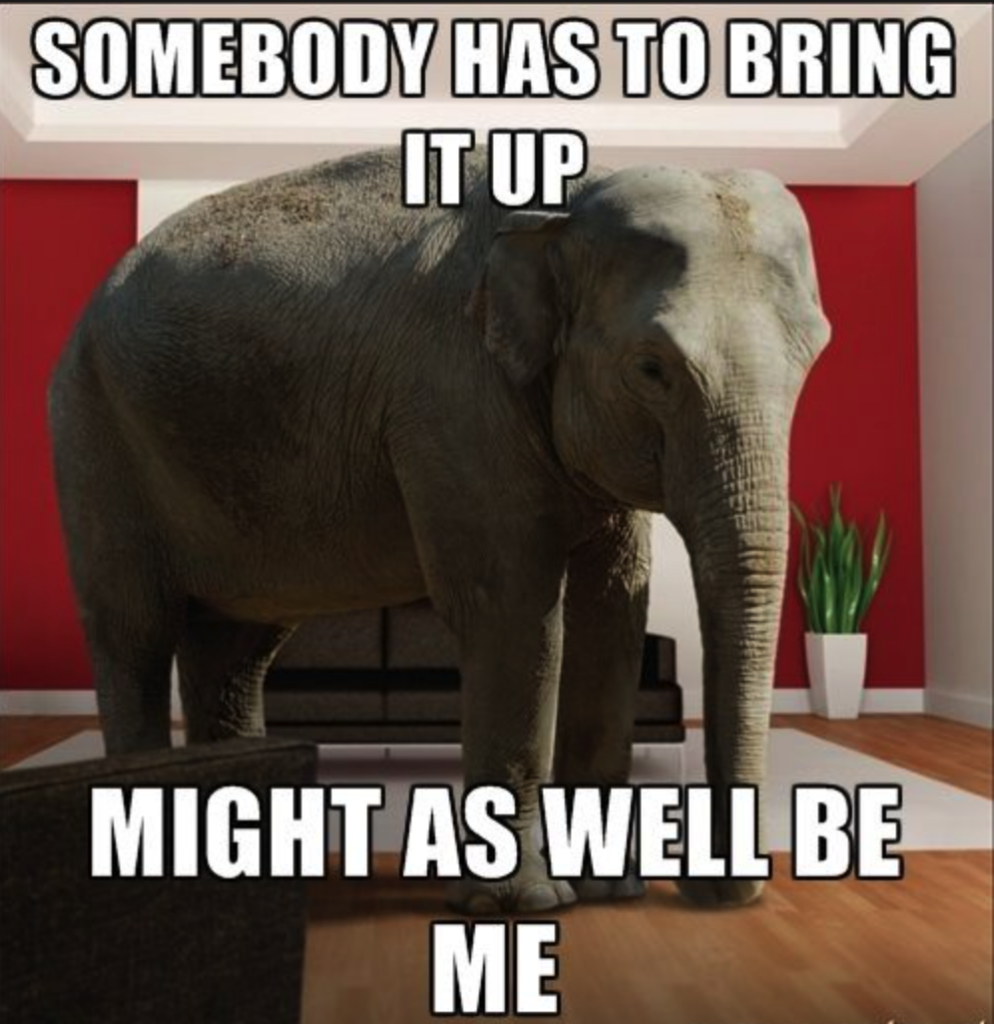

With social media, I could pace myself and interact at times my energy levels were better. When I fell into conflict, I eventually learned to back away, come back to it, think through what the person meant, etc. In many ways, social media made me kinder, gentler, and more compassionate with myself and others.
Additionally, I began to see my faults. My bad habits that turned people off on social media—AMAZINGLY—turned them off in life. Talking over people, being prideful, needing the last word (b/c I was so insecure), believing I had to be constantly entertaining, failing to really listen.
I am SO glad I don’t struggle with ANY of that anymore!
*dodges lightning*
I believe a lot of us ND people who used to just be weird loners with no friends or one or two friends started, for lack of a better term…showing up. Me? I went from the weirdo nerd who kept to herself reading and mostly engaging in solitary hobbies to finding my people.
Yes, on-line there were people like me who loved science fiction, D&D, campy horror films, and bad Kung Fu movies. People like me who also loved to argue whether Warp 10 was even possible or whether or not the sand worms in Dune should have spontaneously combusted due to friction.
Yes, this is the stuff that keeps me awake at night.
Again “Thank” the Digital Age


Conversely, while the digital age certainly offered ND people tools we’d never had before, it’s also created a lot of problems. We are starting to see the negative effects of having kids on technology too young, too much and too frequently.
Humans learn empathy by being around other people, studying body language and facial expressions. Most human communication is body language. When we are all in front of screens, working from home or even at an office in front of a screen all the time, we can lose those skills that have been innate since the dawn of humanity.
While I certainly do not claim to be an expert (this is all MY experience and opinions), I feel we might just be noticing ND more in a digital world.


And yes, I have seen the threads that Amish kids don’t have autism or spectrum disorders. BUT, I will also say that the Amish represent how human civilization worked for the past few thousand years.
They wear the same clothes made of natural materials, do a lot of physical labor, and there are no digital distractions. Their diet is all fresh food and very simple and life is very routine. Up at the same time, to bed at the same time. Rest on the Sabbath.
MAYBE the Amish DO have folks on the spectrum. Maybe they don’t. I’m not a researcher, so…um, okay. My point is, though, would we NOTICE neurodivergence in a routinized, agrarian society the way we do in the modern digital world?
So THIS SAID, if our digital world is a) showing us there were/are more ND people than we realized b) creating ND people c) stressing ND people…then we’re wise to learn our own limitations and develop compassion for ourselves and others.
Cuz frankly? The Neurotypical people don’t seem to be faring too well drinking from digital firehoses all day every day, every week of every year.
Beware of the Baader-Meinhof Phenomenon
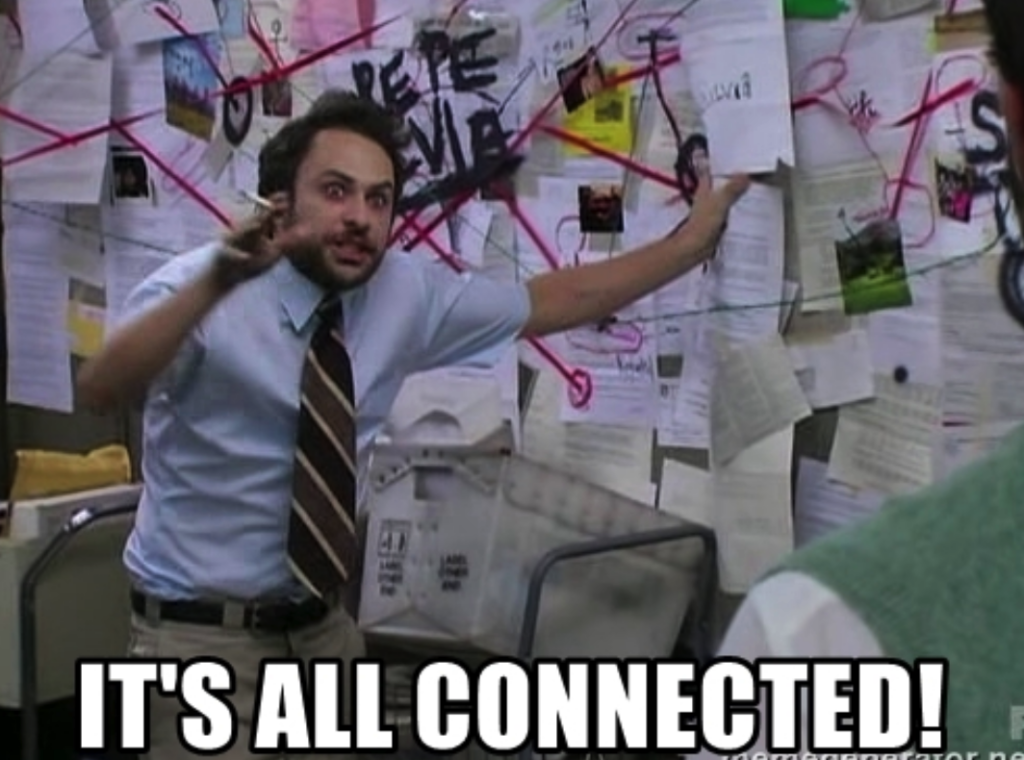

WHAT? Other than archaic names for common illnesses, impress your friends with THIS little nugget (Bay-dur MINE-hoff).
*flips hair*
Ever run into a term you KNOW you’ve never heard in your life, then hear it at least four more times in the next week? Or see something you know you’ve never seen before, then suddenly it’s everywhere? Reverse-harems? Punk-Rockabilly-Zydeco? Kombucha?
I’d never heard of Bikram Yoga until a friend told me about it and then…it was everywhere. Following me with sweaty mats…carrying Kombucha O_O .
The Baader-Meinhof phenomenon is also known as the frequency illusion or the recency illusion. While I DO want to highlight the strides the mental health fields have made regarding spotting and treating those on the ND spectrum, we also should be mindful we aren’t suddenly seeing it everywhere.
It is possible to be empathetic and responsible at the same time. Life is a process, and we are all in this together.
What Are Your Thoughts?
Do you think more people are on the ND spectrum because we are finally noticing it? So we can diagnose the far less acute cases?
Do you think the massive influx of data, images, and too much time at a screen is causing something wholly new never seen? For instance, repetitive work injuries weren’t as big of a thing until the invention of assembly lines.
Are the aliens reading our minds and we can’t concentrate because of all the recipes they’re trying to share?
All kidding aside, I want to always hold myself accountable for my behavior, actions, and inactions. For ME, though, recognizing my brain just did things very differently has been a huge help not only on my own, but when interacting with others.
It is my hope this blog helps you or someone you know and love. What do you think?
